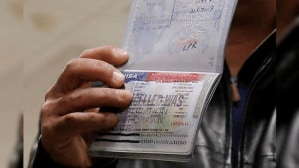Mark Zuckerberg’s Facebook Inc is evaluating the possibility of investing T$10 billion ($300 million) to build its first data centre in the Asia-Pacific region in Taiwan, joining Google, an official said on Wednesday.
The centre would require 6 acres (2.43 hectares) of land, with the possibility to expand to 20 acres in the future, according to Magistrate Wei Ming-ku of Changhua County in central Taiwan.
“We’ve made all-out efforts to ensure sufficient supply of water and electricity … We hope they will come,” Wei said.
Google has built a data centre in Changhua County, partly in hopes of tapping fast-growing Asian markets.
Facebook, the world’s largest online social media network, said no decision had been made.
“As a global company working to connect billions of people around the world, we are always evaluating potential sites for new data centres, but we don’t have anything to announce at this time,” a Facebook spokeswoman said in an email.
It would be Facebook’s first data centre in Asia, following four others in the United States and one in Sweden, Taiwanese media reported.
Also read: Facebook’s Mark Zuckerberg, wife, others in big philanthropy push







